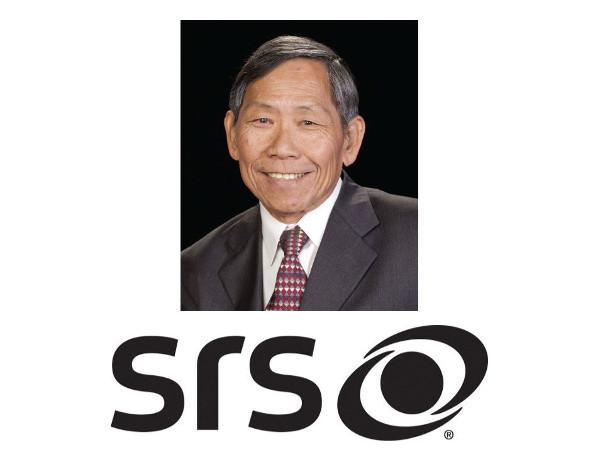Remembering a Remarkable Man

Tom asked me to do some consulting for SRS Labs in 2008 and later extended an invitation to join an advisory board. From the beginning, everything about Tom was both informal and concise. His emails started with “Hi Ken,” and then completely communicated the necessary information in one or two sentences. As I write this, I am looking back at some old emails. Everything is dialed in, crisp. He was well informed, knew all the details, and was eager to fill any small gaps in his knowledge. He was simultaneously the proverbial smartest guy in the room and the most enthusiastic student.
At the time, I was somewhat aware of Tom’s engineering and business career. With a degree in electrical engineering under his belt, he worked for Hughes Aircraft and Sperry Univac. In 1981 he co-founded AST Research, a personal computer company, and served as co-chairman and chief operating officer. Under his leadership, AST soon became a Fortune 500 company with revenues of $1.14 billion in 1992. Seeking new frontiers, he left AST in 1992 and bought a majority stake in a fledgling SRS Labs.
It was a natural fit for Tom because SRS (Sound Retrieval System) technology was originally developed at Hughes Aircraft, his former employer. The company quickly prospered under Tom’s leadership, and in 1996 was listed on the NASDAQ. In 2008, some 36 million flat-panel televisions with SRS technology were shipped, representing about 30 percent of total market share. The company’s sound-expanding solutions such as TruVolume, TruSurround, TheaterSound, TruBass, WOW HD, Circle Surround, and CS Headphone were ubiquitous. After decades of growth, the company and its portfolio of more than 150 patents was acquired by DTS in 2012.
That’s pretty sensational, but I was more impressed by the man himself. I want to give you some insight into Tom. Here’s one example: I taught for 30 years and over that time gave countless lectures and presentations (most audience members would say I gave too many). Now, after the concluding remarks, a presenter knows whether they’ve hit a single or a home run, bunted or struck out. Trust me — you know. At the corporate level, when you’re done, your host usually tells you how wonderful it was. Tom didn’t do that. Instead, after I had finished my presentation, he responded in a way that was wholly unique in my experience. His remarks to me were exactly calibrated to my performance. If I knew I had hit a double, his criticism was balanced. After a (rare) home run, his praise was effusive. And after I struck out, his smile was as warm as ever, but as a gentleman, he refrained from pointing out the obvious.
What impressed me most about that was that this very busy guy, who had a million more important things to think about, had each time carefully listened to what I was saying and had precisely evaluated the message and also the totality of the communication. What I mean is this: Anyone can take notes and absorb the material, but in addition to that, Tom was operating at a higher level, solving some mysterious equation that gauged the quality of the material, told him whether the material was appropriate, how well it was presented, how accurately it was received, what the audience might derive from it, and what the net outcome was for everyone involved. And his evaluations were always exactly correct. I knew then that he was a rare kind of boss.
Some people are really good at details. Others can more easily deal with the big picture. It is the rare individual who can span that entire breadth. Tom was that kind of guy. After spending the morning writing a shareholder’s report projecting the next decade of growth for the company, I imagine he could take a break, wander into a cubicle, and remind a software engineer that she still needed to fix the bug in line 124 in subroutine 28 — and politely hang around until it was fixed.
Finally, let me try to express what might be, in the world of CEOs, Tom’s most unique quality, one that his many friends will not be surprised to hear: When I first met Tom, judging from the informality of his emails, I expected a certain informality in his demeanor. What I did not expect was that he would be so downright friendly. A lot of corporate leaders maintain a strict sense of reserve — a defensive barrier between themselves and their employees. They believe, perhaps not unreasonably, that their position demands a certain higher degree of respect. That was not how Tom operated. If I hadn’t been properly introduced when I first met Tom, I would never have guessed that this modest man had built a company that had sold a billion products, made hundreds of millions of dollars, provided a livelihood for hundreds of people, and helped countless customers enjoy their music just a little more.
As I noted, at the time, I was somewhat aware of Tom’s career. I was not aware of his medical condition. Back in 1980, Tom’s kidneys failed; he was diagnosed with Alport Syndrome, a hereditary disease, and would require dialysis for the rest of his life. It was only a year later, undeterred, and perhaps spurred by the diagnosis, that he kicked his career into high gear with the co-founding of AST Research. And while he was still at SRS, he bought a majority stake in PrimeGen Biotech, a medical research company, serving as its chairman and CEO. Under his guidance, the company used unique approaches to discover new stem-cell therapies for a variety of age-related and chronic diseases. He also donated generously to stem-cell research at the University of California at Irvine. In the same way Tom built SRS and improved the sound quality of so many products, his pioneering work in medicine might one day improve the lives of many people who suffer from diseases such as his.
To conclude a paean, presenters usually summarize their thoughts. In the case of an obituary, the summary usually takes the form of a final commentary on how a life was lived. To my great regret, I didn’t know Tom well enough to attempt any such pronouncement on a life as rich and varied as his. But it was my good fortune to meet the man, and to begin to appreciate the extraordinary quality and depth that he possessed. It was just a glimpse. But I’ll treasure it.
Ken C. Pohlmann is an electrical engineer specializing in audio topics as a consultant and writer. He is Professor Emeritus at the University of Miami.





























































